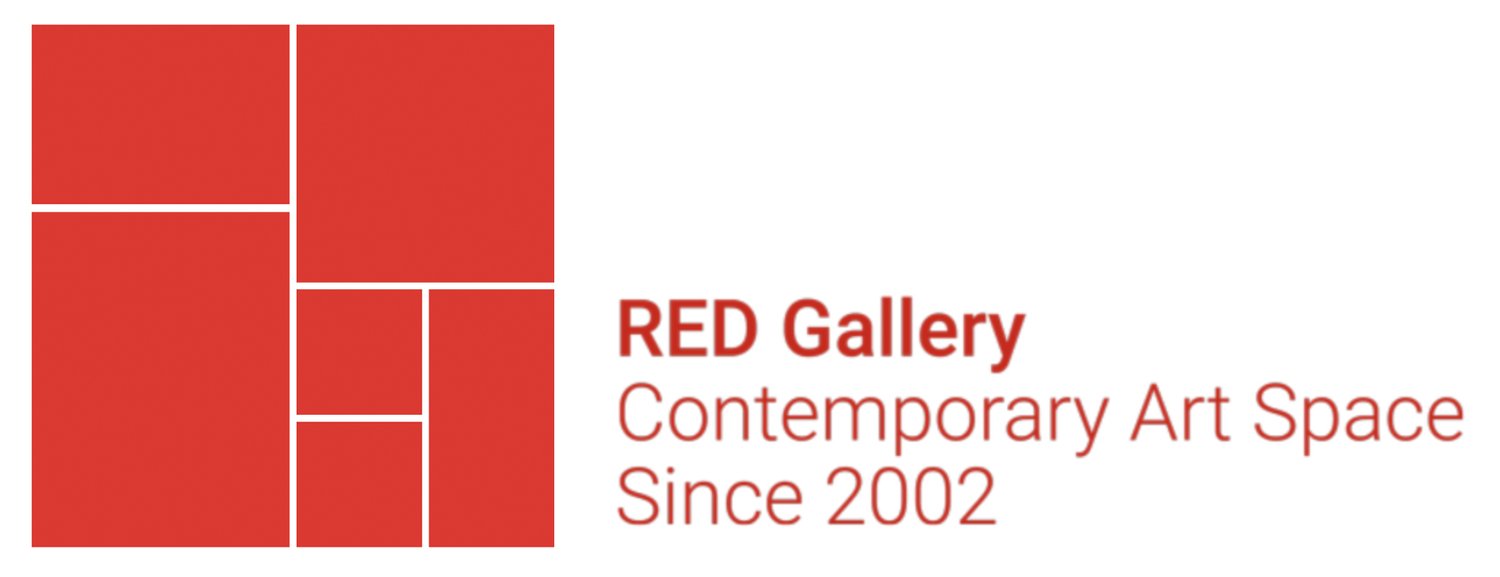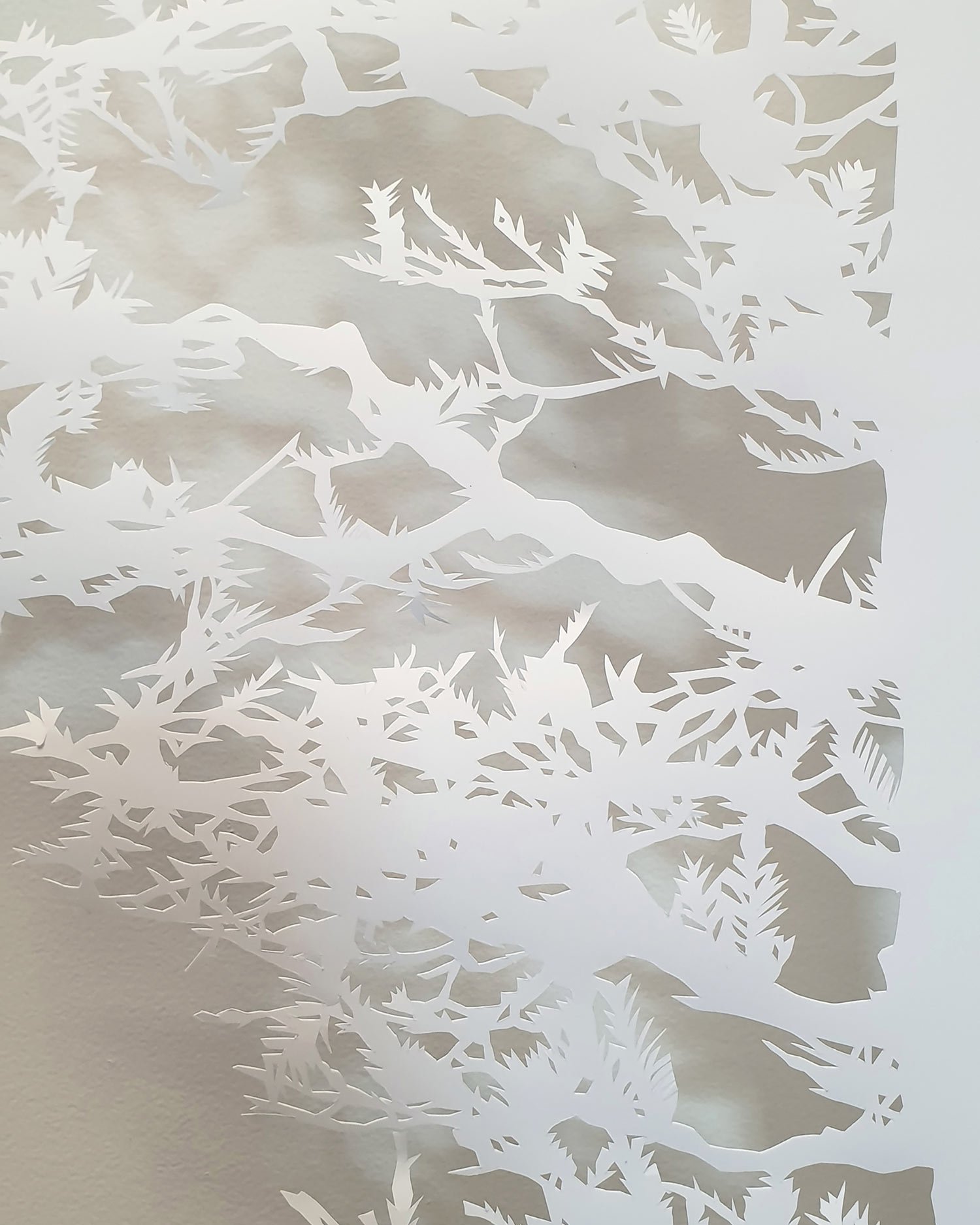Elysha Rei
余白の美: Yohaku no bi
(the beauty of empty space)
9 - 27 November 2022
G3
Opening Night
Friday 11 November | 6pm – 8pm
◼︎
This hand-cut paper installation references principles of Japanese garden design, connecting to Rei’s ancestry dating back to Tea Master Katagiri Sekishu. Drawing upon oral histories from her Japanese grandmother – a war bride who came to Australia in 1953 - these pure white works invoke a space of calm and tranquillity that honours the symbolic gesture of peace found in her grandparent’s relationship, and is an expression of Japanese-Australian identity.
Artist Statement
On an Asialink Arts residency to Japan in 2018, Rei had the opportunity to learn more about her Japanese ancestors and the story of her Australian grandfather meeting her Japanese grandmother during the British Occupation in Japan after WWII. Her grandmother migrated to Australia as a Japanese war bride in 1953, then Rei’s mother was born in Southport in 1954, and was the first baby born in Queensland to a Japanese war bride.
Since this pivotal pilgrimage to Japan, Rei’s contemporary art practice has been a space for navigating this journey, researching and archiving cultural remnants of the family history. It has inspired a new direction in arts practice where silent narratives and cultural knowledge lost through intergenerational experiences of cultural assimilation are being captured and processed as a means of archiving Japanese Australian identity.
Rei’s ancestor, Tea Master Katagiri Sekishu, founded the Sekishu School of Tea Culture in 1665 where the tea ceremony was used as a setting for diplomatic discussions between Samurai and enemy generals. He was also a master of Bonseki – the Japanese art of creating miniature ephemeral landscapes on black trays using white sand, pebbles and small rocks.
Inspired by the desire to connect to this ancestral bonseki practice, this show references elements of Japanese garden design. The ground plane installation is inspired by the raked patterns in Japanese stone gardens, with circles of water enveloping the Koi carp fish, each representing one of the three generations of women in Rei’s family. In Queensland the koi carp is classed as an invasive species, reflecting on the harsh sentiments towards Japanese people in post-war Australia. Swimming against the current, the koi symbolizes courage, strength and perseverance, qualities observed within Rei’s grandmother and mother as they navigated instances of racial tension and cultural loss.
The series of wall-mounted bonsai trees reference plants growing at the Brisbane Botanic Gardens, the city where Rei’s mother was raised. These cultivated plants traditionally represent harmony between man and nature, and the dignified process of aging. Bonsai trees, like family oral histories, can live for up to 1000 years with enough care and attention. Each tree hangs upside down from the last hinge of the void it was cut from, refusing to be completely released from its origins. Rei’s grandmother spent most of her life assimilating into Australian culture, to protect her family from racial discrimination. Like these bonsai trees, the connection to Japan was never completely lost. The paper remnants scattered beneath each tree, symbolise cultural remnants saved within the family through oral histories and ornaments handed down to third and fourth generations. All pieces of the paper – cut-out, cut-from and discarded – are all valuable components of the whole work. This is representative of the complexity and beauty found within all parts of transcultural and diasporic identity.
Rei’s grandparent’s relationship has inspired this tranquil installation – honouring the gesture of peace and diplomacy between two former enemies and inviting the viewer to experience a moment of calm and contemplation. The work honours the contribution Japanese war brides have made to Australian culture and migration.
Artist Bio
Elysha Rei (pronounced eh-lee-sha ray) is a Japanese-Australian artist that explores narratives of cultural identity, site-specific history and environmental elements through paper cutting and public art. She has a Bachelor of Visual Arts from USQ (2008), a Master’s in Business Administration (2018) and is currently undertaking a PhD exploring how Nikkei* Australian identity is archived through contemporary paper cutting arts practice. Rei has created and exhibited work, curated exhibitions and managed cultural spaces across Australia, Japan, New Zealand, Netherlands, Thailand, and the US. She founded the international artist residency program, Sam Rit Residency in rural Thailand in 2014, and co-founded the Artist-Run-Initiative Made Creative Space Toowoomba from 2011-2013. She has been an invited artist in residence for Museum of Brisbane, Artspace Mackay, and Barcaldine Arts Council. In 2018 was the recipient of an Asialink Arts Creative Exchange in Japan. She has public artworks in Brisbane, Toowoomba and Warwick, and artworks in the collection of the Westin Brisbane, Brisbane City Council, Warwick Regional Council, Toowoomba Regional Art Gallery, QIC and the University of Southern Queensland.
*Nikkei is a Japanese word for descendent, used by diasporic communities in Canada, Australia, and the US.
Elysha Rei - b.1986 Saudi Arabia
Lives and works Meanjin (Brisbane), Australia
www.elysharei.com
Contact
Phone : (03) 9482 3550
mail@redgallery.com.au
Address
157 St Georges Rd
Fitzroy North, Victoria, 3068
Map
How to get here
Tram: route 11
Stop 21 just north of Edinburgh Gardens
Melway ref: 30B12
Parking in nearby streets
Bus: 504 (Reid Street)

